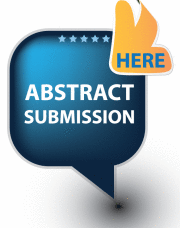Jeet Bahadur Moktan
Research, Adichunchanagiri University, India
Title: Identification And Evaluation Of Globally Emerging Trend Of Antibiotic Resistance In Community
Biography
Biography: Jeet Bahadur Moktan
Abstract
Antibiotics are one of our most effective weapons in the fight against life-threatening infections. Antibiotic resistance does not indicate that the body has developed tolerance to antibiotics; rather, microorganisms have developed resistance to the drugs intended to kill them. Methods: This study was prospective and observational and conducted in inpatients in various wards of AH&RC. Objective: To identify and evaluate the antibiotic resistance. Results: After the informed consent process a total of 200 samples (5 ml of blood and 5- 10 ml of urine) from 200 different patients were collected and cultured. The mean age of the patients was 37.12 years (range 0 - 91) and 109 (54.5%) were males and 91 (45.5%) females. Bacterial pathogens were detected in 56 samples, 25% of which were the maximum from under 20 years age group and least was from the 70 years and older. In the study we found more GNB compared to the GPB. In case of GNB we found 39(19.5%) followed by GPB 17(8.5%) and remaining 144(72%) of samples showed no growth. Overall, E. coli isolates were highly resistant to ampicillin (100%) followed by ceftriaxone 84.21%, ceftazidime 78.94%, and ciprofloxacin 76.19%. Nitrofurantoin (15.78%) demonstrated the lowest rate of resistance in the study, in case of E. coli. Conclusion: Bacteria that cause antibiotic resistance can infect anyone, at any age, in any nation. They result in longer hospital stays, more medical costs, and more deaths that could have been avoided. Antibiotic resistance is one of the most serious dangers to world health, according to the WHO. As a result, as humans, we must support the healthcare team by adhering to guidelines or protocol at all levels by (i) increasing awareness and understanding of AMR through effective communication, education, and training; and (ii) strengthening knowledge and evidence through surveillance. Key words: antibiotic, antibiotic resistance, microorganisms, infections, community.

